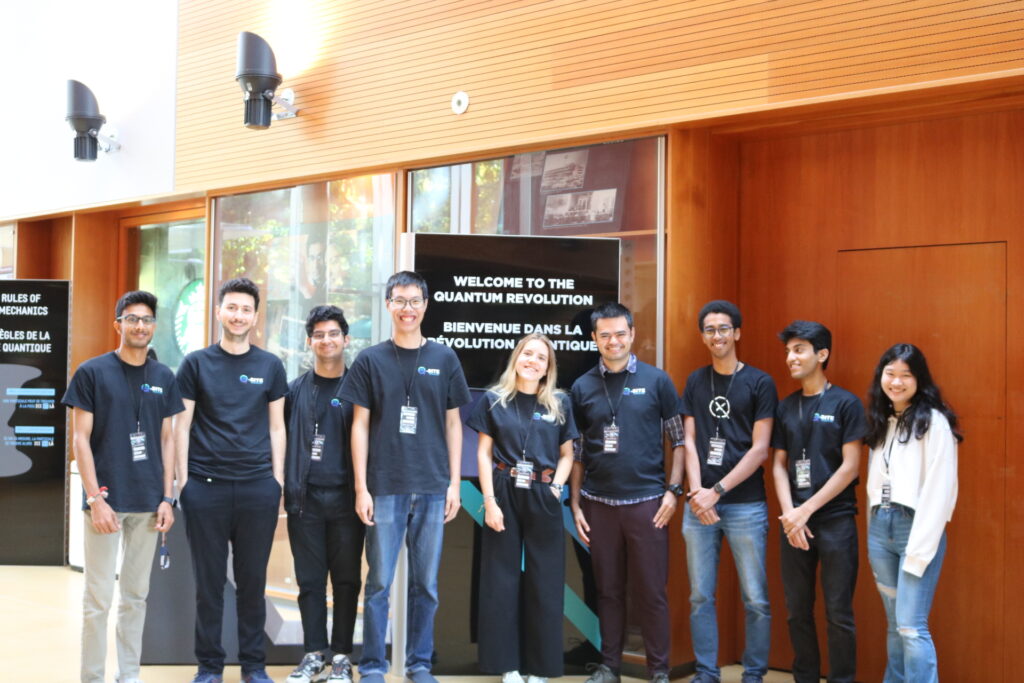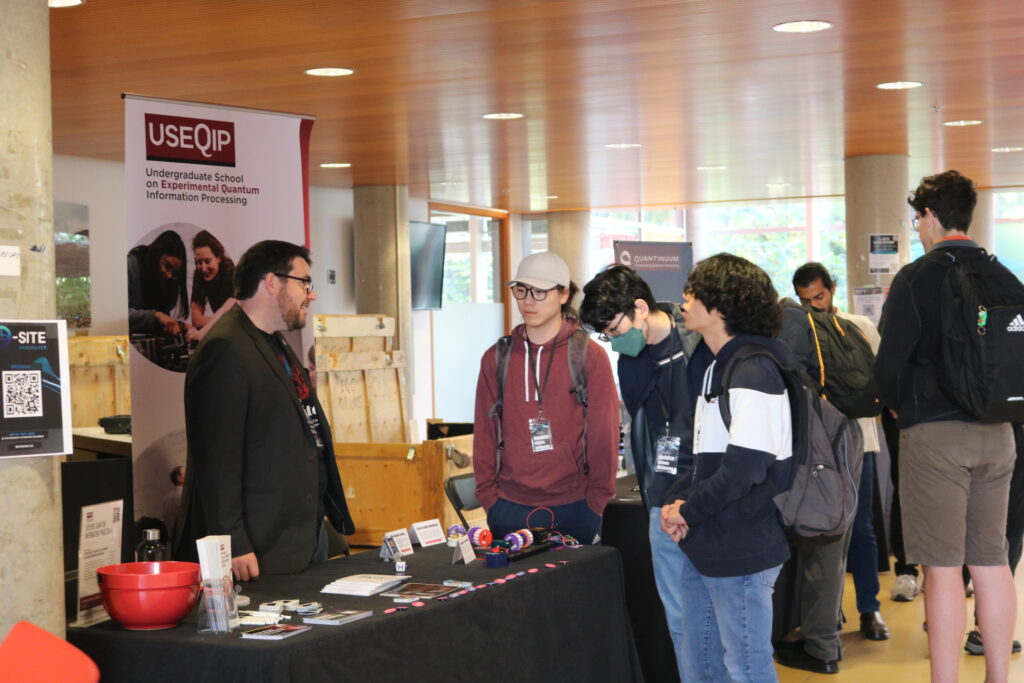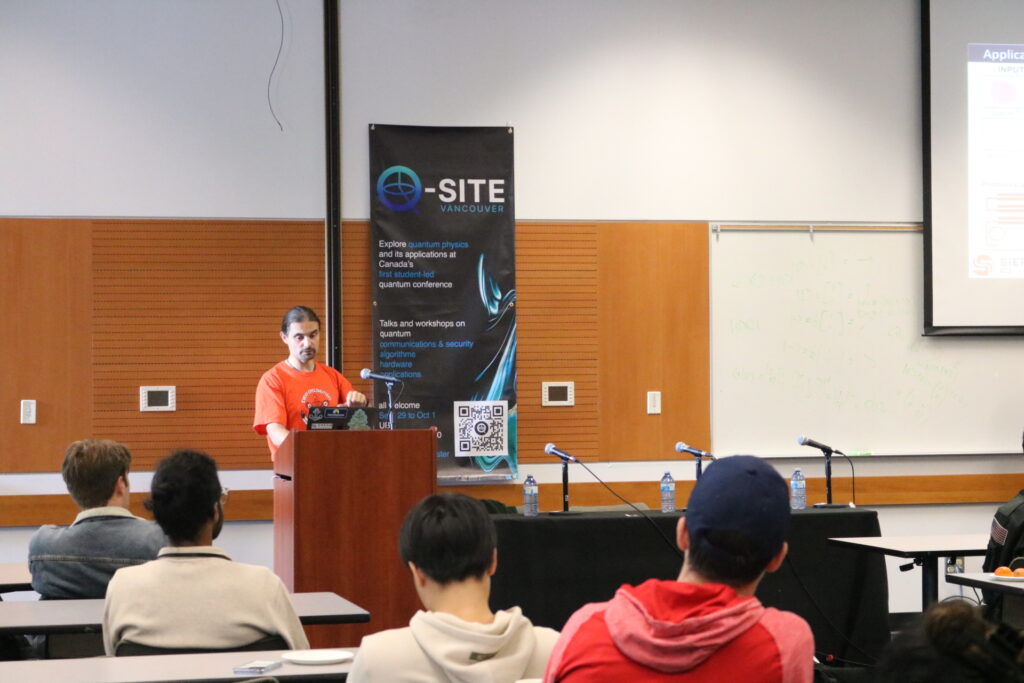Q-SITE Vancouver, a student-driven quantum technologies conference, took place September 29 — October 1, 2023 at the University of British Columbia. Originally founded at the University of Toronto, it is the first of its kind as a student-for-student quantum computing conference. With a record-breaking number of attendees from institutions across Canada, and led by volunteers from UBC and Simon Fraser University, Q-SITE Vancouver provided students with the opportunity to learn more about quantum computing and how to break into the industry.
Spearheading the Q-SITE Vancouver effort was the UBC Quantum Club (UBCQ). Beginning in 2021 with inspiration from NSERC CREATE in Quantum Computing, UBCQ is a student-led organisation dedicated to bridging the gap between undergraduate and graduate level studies in quantum computing and related fields, and creating a diverse community of undergraduate learners. With accessibility and inclusivity as core values, the club offers extensive support to students who may be new to the field or have limited experience using industry tools.
During the three day conference, over 580 undergraduate, masters, and doctorate students observed talks and workshops on communication, cryptography, machine learning, and hardware, all with a quantum “spin”. Capping off these talks and workshops were three hackathon-style challenges, with problems and resources offered by industry partners IBM, Classiq and Quantum Village. For many students, this was their first hands-on exposure to solving problems with quantum computing, and using the commercially available programming tools.
Several speakers highlighted the strengths and challenges of different computing hardwares; from spin to superconducting to photonic to qudits to cats, there was something for everyone. Another common theme among the talks was the collaborative nature of quantum computing. It is an accelerating, interdisciplinary field, with applications cutting across several industries, requiring all hands on deck from students, researchers, investors, and policy-makers to steer its potential.
To end the event, a career panel addressed quantum computing from the perspectives of industry, academia, and incoming researchers. Members of the panel included Dr. Mark Jackson of Quantinuum, Dr. Thomas Baker of the University of Victoria, and graduate student and Xanadu Resident, Rio Weil. This discussion best showcased where students could start investing themselves in the field, via research internships, volunteering opportunities, and beyond.
Qubits might be small, but their impacts are large. With Q-SITE bridging Eastern and Western Canada, knowledge around the promise and opportunities of quantum technologies spreads to a wider audience, with the hope that this will have a lasting impact on how the undergraduate community views quantum information sciences and technology and encourages them to partake in its future.
Written by Kenneth Bruskiewicz, edited by Lily Watt, photos by UBC Science Undergraduate Society



